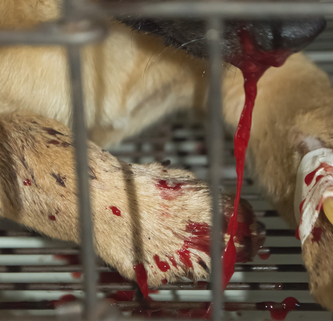Nose Bleeds (Epistaxis)
Epistaxis is defined as acute hemorrhage (bleeding) from the nostril, nasal cavity, or nasopharynx. This is commonly referred to as a nosebleed. Epistaxis can be caused by trauma or by upper respiratory tract infections. There may be other causes which require immediate treatment. These include liver failure, inflammation from an unknown cause, bone marrow disease, or various fungal diseases.
You may be wondering what to do if your dog gets a nosebleed. If your dog begins bleeding from the nose, try these simple steps to stop the bleeding:
Keep your dog calm. Elevated blood pressure associated with excitement will increase the bleeding.
Place an ice pack on their nose. The cold will constrict small blood vessels which will slow down the bleeding.
Avoid medication. Only administer medication if you were advised to do so by your veterinarian.
You will need to seek emergency veterinary care if these steps do not stop the bleeding or if your dog is having breathing problems. A dog with a bloody nose is at risk for swallowing a great amount of blood. This can lead to black stool (melena) or vomit that contains blood clots (hematemesis).
Treatment is directed at the underlying condition or primary cause. In the case of infection, or surgery procedures, antibiotics may be prescribed. Based on the exam findings, your veterinarian may recommend one or more of the following tests: complete blood cell count, urinalysis, blood pressure, or fungal cultures.
Nosebleeds are a huge concern and should be taken seriously. They may be an indicator of a much larger health issue that needs to be addressed. This is why it is always best to pay close attention to your pet and the issues they are experiencing.



